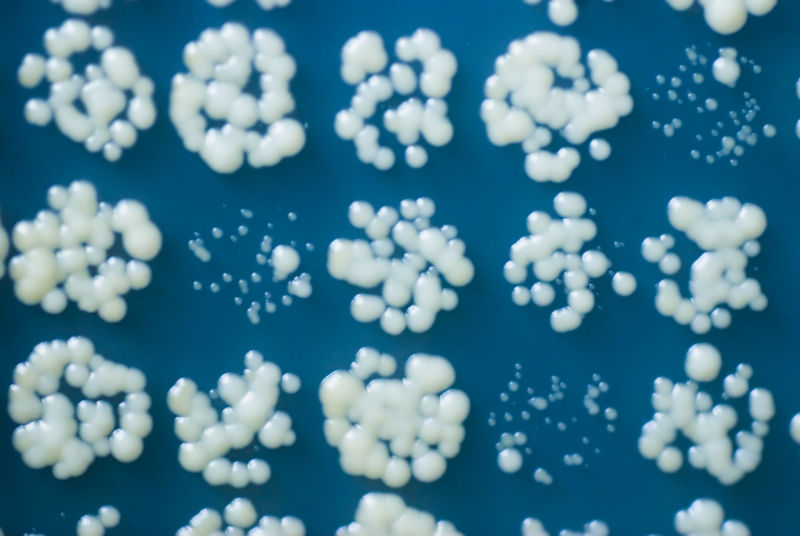Researchers completely re-engineer yeast to make more biofuel

Enlarge / Colonies of genetically modified yeast. (credit: Conor Lawless)
A little while ago, we covered the idea of using photovoltaic materials to drive enzymatic reactions in order to produce specific chemicals. The concept is being considered mostly because doing the same reaction in a cell is often horribly inefficient, because everything else in the cell is trying to regulate the enzymes, trying to use the products, trying to convert the byproducts into something toxic, or up to something even more annoying. But in many cases, these reactions rely on chemicals that are only made by cells, leaving some researchers to suspect it still might be easier to use living things in the end.
A new paper in Nature Catalysis may support or contradict this argument, depending on your perspective. In the end, the authors of the new paper re-engineer standard brewer's yeast to produce molecules that can be used as fuel for internal combustion engines. The full catalog of changes they have to make is a bit mind-numbing, and most achieve a small, incremental increase in production. The end result is a large step forward toward biofuel production, but the effort involved is intimidating.
Making fuelBrewer's yeast, as the name implies, can already produce a biofuel: alcohol. But ethanol isn't a drop-in replacement for many current uses, which raises questions about its overall utility. If we have to re-engineer both our engines and our infrastructure in order to use it to replace fossil fuels, then there's not much space for a smooth transition away from gasoline and other liquid fuels.
Read 17 remaining paragraphs | Comments